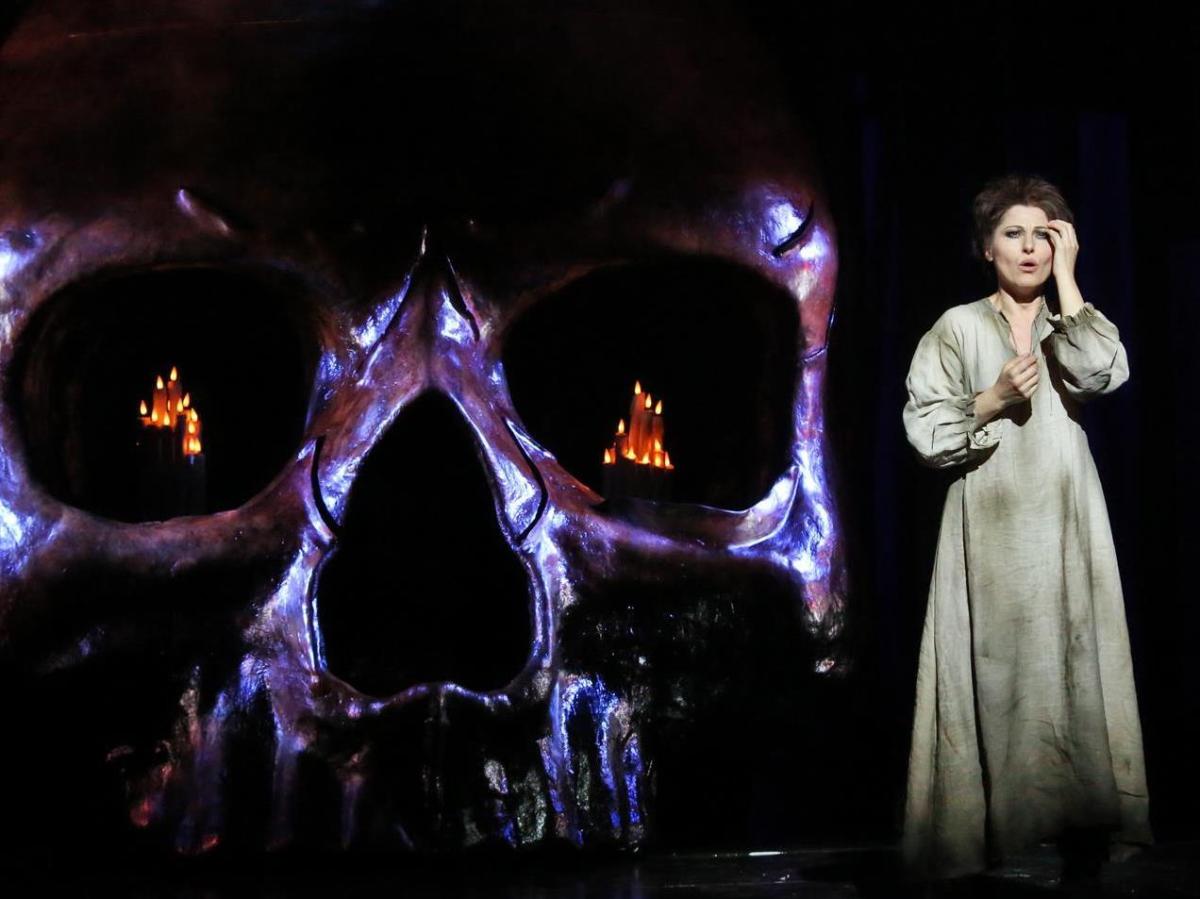Sveta Vassileva as Leonora in Opera Australia’s 2013 production The Force of Destiny. Photo: Prudence Upton.
In the arts – both in Australia and internationally – it is accepted practice that critics receive complimentary tickets to allow them to get into a show. What they write once they have seen it is, at least in theory, not to be affected by the advantage they gain in getting in for free.
Companies accept that reviews may either praise or condemn a work, and critics in return tacitly agree to document, interpret and analyse the works they see in a rigorous, self-aware, and independent manner. Through this collaborative process, critics and companies alike add to and enrich the greater creative culture.
Sometimes, however, this process breaks down. It might be the fault of the critic: perhaps they were intemperate or unprofessional in their language, or allowed personal bias to inform a review; perhaps they lacked the specialist knowledge required to analyse a particular work with appropriate insight. Sometimes the fault is more self-interested, as in the case of a critic who holds back from expressing what they really felt out of fear of biting the hand that feeds them.
And sometimes the problem is with the offense taken by a company smarting from bad publicity. In the past week correspondence has come to light revealing that Opera Australia – and in particular the company’s Artistic Director, Lyndon Terracini – responded to two recent examples of criticism by cutting the writers in question from the company’s complimentary tickets list. In this instance, however, it was not acidic reviews which caused the company’s ire, but strongly-worded opinion pieces critical of Terracini’s programming by Sydney critic and former arts editor of the Sunday Telegraph, Diana Simmonds, on her website Stagenoise; and by Sydney Morning Herald classical music critic Harriet Cunningham, writing for The Daily Review.
Simmonds described Opera Australia’s recent seasons as ‘some of the dullest season programs ever for Sydney and Melbourne (check out 2015’s and stay awake if you can)’. She was also scathing of the casting of shock-jock Alan Jones in the company’s 2015 production Anything Goes, asking: ‘Just how many among his average audience of ageing pensioners, uncultured bigots and rednecked no-hopers are likely to go online to subscribe?’
Similarly, in a piece entitled Why I’m not going to the opera next year, Cunningham describe the company’s 2015 Sydney season as consisting of ‘shows more limited in repertoire, more traditional in style and more narrow in their appeal than I have seen for years’.
In response, both Cunningham and Simmonds received correspondence from Opera Australia stating that they would no longer be receiving complimentary tickets for the company’s productions.
Simmonds published an extract from the email she received on her website: ‘In response to some of your recent writing about the company, Lyndon asked that you be removed from the media list.’
Cunningham shared a screen grab of the email she’d received on Twitter:
You’re not alone. RT @DianaSimmonds: Oh no! Stage Noise – Diana Simmonds http://t.co/U7aQMU4C30 pic.twitter.com/r2Z2o7kRwr
— Harriet Cunningham (@harryfiddler) January 2, 2015
Consequently, social media has been abuzz with discussion of the fracas, and articles about the situation have appeared everywhere from the Sydney Morning Herald and Limelight Magazine to the ABC.
In a letter to the Sydney Morning Herald, Terracini denied that the two critics had been banned. ‘One journalist, the day after writing an article titled, “Why I’m Not Going to the Opera in 2015”, curiously contacted Opera Australia asking for free tickets. Her request was politely declined. Another wrote a particularly negative blog about the 2015 season that indicated she had no intention of attending. Her request for tickets was also declined, given that it appeared she had no wish to attend.’
Cunningham admitted to ArtsHub that the headline had been ‘In retrospect, a bad choice’ and said she is now writing a second piece entitled ‘Why I am going to the opera’.
In light of the email extract published on Simmonds’ blog, and bearing in mind the definition of ‘banning’ as ‘to officially prevent (someone) from doing something’, Terracini’s claim that the two writers in question have not been banned appears disingenuous.
Of course as the company’s Artistic Director he is technically within his rights to decide who does and does not receive complimentary tickets to Opera Australia’s productions. But the decision not to provide tickets for Cunningham and Simmonds is petulant and punitive in a way that may damage the frankness of discourse around arts programming in Australia. It implies that Terracini believes such highly experienced critics could not possibly set aside their opinions of the programming in order to review the company’s 2015 productions dispassionately.
Terracini’s decision also sets a dangerous precedent for the ongoing relationship between Australian critics and the companies whose works they review, particularly in a small community where the reality is that many arts writers must also be critics.
Opera Australia clearly has an interest in quality criticism. Its Critic-in-Training program is an admirable attempt to enrich our critical culture, just as a similar program run by Next Wave Festival contributed to intelligent critical conversation. But Terracini is in danger of trying to exert too much control over both the message and the messenger. We understand Opera Australia attempted unsuccessfully to find an independent partner for its Critic-in-Training program and it would certainly have been preferable for it to be a joint endeavour with an organisation committed to independent criticism.
Unfortunately Opera Australia’s actions send a message to critics not to be too critical. It would not be the first time an Australian company has tried such an approach. As critic Alison Croggon wrote in a recent piece at the ABC Arts portal, ‘Australian performing arts companies have an inglorious history of banning or secretly pressuring publications to sack troublesome critics – but it doesn’t make it any less contemptible.’
In an ideal world, critics would either purchase their own tickets and claim them back on tax; or the media outlets to which critics contribute would pay for their writers’ opening night tickets, freeing reviewers from the fear of upsetting the apple-cart with an overly harsh review and ensuring their independence.
Unfortunately, the reality is that we don’t live in an ideal world. Instead we live in one where the budgets of publishers are increasingly under pressure and where most arts writers are passionate individuals working on a part-time, freelance or even volunteer basis, who simply could not afford the costs of purchasing multiple tickets.
So what’s to be done?
It is the job of arts organisations to present the best works they possibly can in order to captivate and inspire. It is the job of critics to review those works fearlessly, honestly and with insight. The symbiosis between company and critic is – as the past week has shown – sometimes uneasy. Nonetheless, such tensions are healthy, perhaps even necessary; the occasional drama such as the spat between Cunningham, Simmonds and Terracini throws the uneasy relationships that exist in the art world into sharp relief, reminding all of us that relationships of any kind should never be taken for granted.
Perhaps critics should start to publish disclaimers at the end of their reviews, stating – like travel writers – that they received free tickets to the production in question. Perhaps arts organisations should remember that there’s a difference between publicity and advertising.
But perhaps both need to remember that the audience for arts writing is not those invested in the performance or arts organisation but the broader public of potential ticket-buyers. It is in the interests of the arts for that public to be engaged by reading passionate, spirited and honest criticism and analysis. If that means occasionally, artistic directors are offended by the comments and opinions of writers, good. It means that journalists and critics are doing their jobs.





